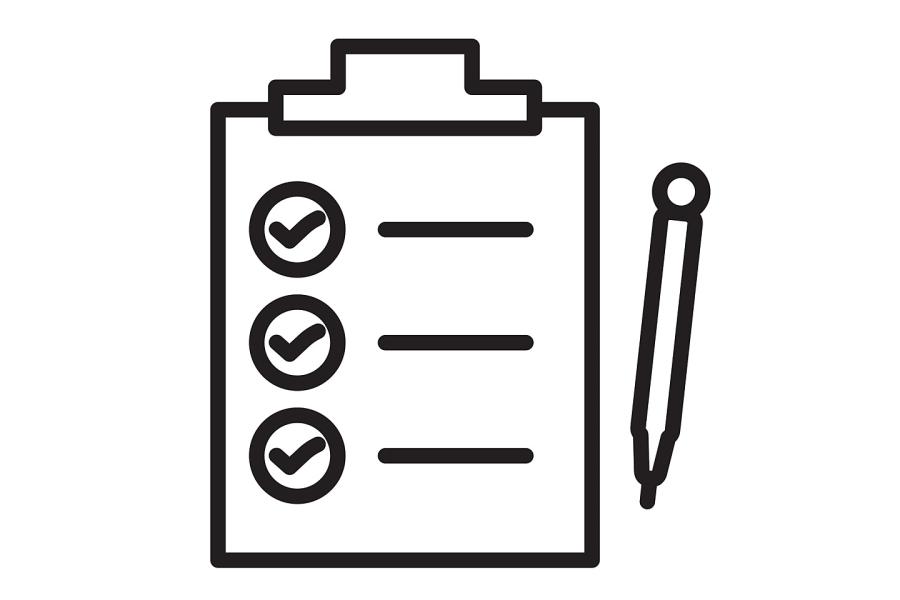This content is provided to Johns Hopkins employees through a partnership with CCA.
Getting checkups from your health care provider is one of many things you can do to help stay healthy and prevent disease and disability. You've made the appointment, reviewed the instructions on how to prepare for certain tests. And you've done the usual paperwork. You're done, right? Not quite. Before your next checkup, make sure to be prepared.
Review your family health history
Are there any new conditions or diseases that have occurred in your close relatives since your last visit? If so, let your health care provider know. Family history might influence your risk of developing heart disease, stroke, diabetes, or cancer; your provider will assess your risk based on your family history and other factors. Your provider may recommend things you can do to help prevent disease, such as exercising more, changing your diet, or using screening tests to help detect disease early.
Find out if you are due for any general screenings or vaccinations
Have you had the recommended screening tests based on your age, general health, family history, and lifestyle? Check with your health care provider to see if it is time for any vaccinations, follow-up exams, or tests. For example, it might be time for you to get a Pap test, mammogram, blood pressure check, tetanus shot, eye exam, or screening for prostate cancer, colon cancer, sexually transmitted diseases, or other conditions.
Make a list of questions and concerns to take with you
Be sure to write your questions down beforehand. Once you're in the office or exam room, it can be hard to remember everything you want to know. Leave room between questions to write down your provider's answers. Consider the following:
- Review any existing health problems and note any changes.
- Have you noticed any body changes, including lumps or skin issues?
- Are you having pain, dizziness, fatigue, problems with urine or stool, or menstrual cycle changes?
- Have your eating habits changed?
- Are you experiencing depression, anxiety, trauma, distress, or sleeping problems? If you've seen changes, note when they began, how they're different from your baseline, and any other observation that you think might be helpful.
Be honest with your provider. If you haven't been taking your medication as directed, exercising as much as you had been, or anything else, say so. You may be at risk for certain diseases and conditions because of how you live, work, and play. Your provider develops a plan based partly on what you say you do. Help ensure that you get the best guidance by providing the most up-to-date and accurate information about yourself.
Consider your future
Are there specific health issues that need addressing going forward? Are you thinking about having infertility treatments, losing weight, taking a hazardous job, or quitting smoking? Discuss any issues with your provider so that you can make better decisions regarding your health and safety.
Also, check out these Johns Hopkins well-being resources
Johns Hopkins Work Stride: Cancer Prevention, Navigation, and Support is an important preventive care benefit available to you.
When it comes to fortifying your mental health, tackling your to-do list, and optimizing your work-life balance, there's one benefit that can help you do it all: the Johns Hopkins Employee Assistance Program. Free and confidential for you and your household members, JHEAP is available 24/7/365 to provide needs assessment and referral to short-term counseling; local referrals for child care; elder care; daily living, legal, and financial needs; and online educational and skill-building content. Call 888-978-1262 to speak to a JHEAP consultant, log on to myccaonline.com (company code: JHEAP), or connect through the CCA@YourService app (access code: JHEAP).
Visit the JHU Healthy at Hopkins website for information on the many benefits and resources available to support you holistically in your wellness journey. You will find the offerings organized around four primary pillars of well-being: physical, emotional, social, and financial. In addition, the university's Workshops & Webinars page offers an array of live and on-demand workshops for your own personal development or a department event. Questions can be directed to wellnessprograms@jhu.edu.
Posted in Health+Well-Being
Tagged hr newswire








